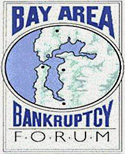
408-971-6270
The cost of doing business: Collecting debts
More than likely, you measure at least part of your business's success by its profits. Your company makes money by providing either or both goods and services to customers. As such, you expect payment in an amount agreed upon between you and each customer.
When you don't receive payment as agreed, your first inclination and action would most likely involve contacting the customer for payment. In some cases, that may work, but in others, the customer continues to withhold payment. At this point, you may need to know your options regarding collecting these debts. Each type of debt collection method involves the increasing need for court intervention.
The type of debt matters
The debts owed to you are either secured or unsecured. Secured debts involve a "security interest" in a piece of property. The most recognizable examples of this are a home that serves as collateral for a mortgage loan or a vehicle that serves as collateral for a vehicle loan, but the property does not have to be one of these two items to provide a security interest. However, you would need to "perfect" your security interest through the filing of specific documentation.
Secured debts provide you with more leverage because you could take back the collateral in lieu of payment. However, your company may be like most others here in California in which any moneys owed to it are unsecured. This presents a different challenge when it comes to collecting on a debt owed by a customer.
The utility of collection agencies
You may decide to hand over the debt to a collection agency, which must adhere to the tenets of the Fair Debt Collection Practices Act. The act regulates the activities of debt collection agencies, and they often find themselves accused of violating those rules. In addition, the agency may not be successful in collecting the debt. You may then need to take other measures in order to pursue the debt.
The need for court action
You may find yourself in a position where filing an lawsuit and pursuing a lien may be the best way to collect the debt. If the court rules that your company is owed the debt, you could receive a judgment for the amount of the debt. A successful lawsuit opens up additional collection efforts such as filing a lien against property owned by the customer.
Depending on what the debt is for, you may be able to file a mechanics or materialmen's lien, which provides additional avenues for collecting a debt, such as foreclosure under the right circumstances.
In order to determine the best route for you to collect a debt owed to you, it may be beneficial to discuss the matter with an attorney who routinely handles the collection of debts. Knowing all of the options available and having a legal advocate on your side as soon as you realize that your customer is not going to pay could help get the money owed to you.
By accepting you will be accessing a service provided by a third-party external to https://www.diemerwei.com/






